06 Aug 2024
In the recently announced Architects for Health (AfH) International Student Design Awards, two graduating architecture students at Xi’an Jiaotong-Liverpool University have achieved great success, with Molong Li being awarded as the winner in the architecture undergraduate category, and Yufei Chen being granted a Highly Commended in the same category.
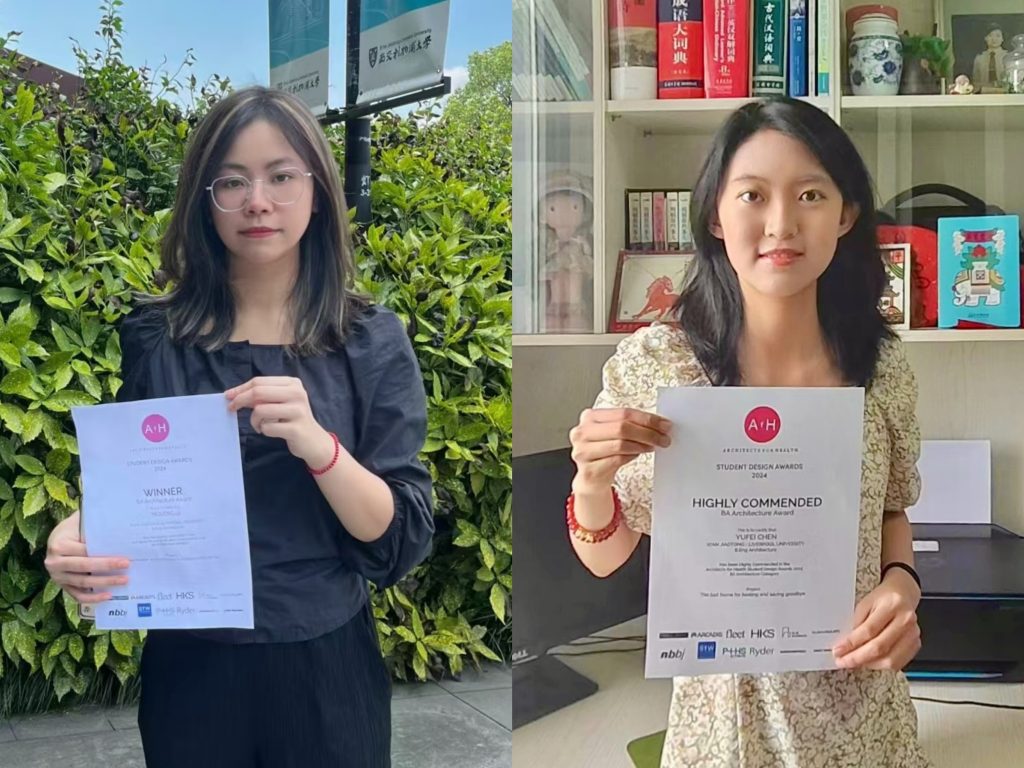
Left: Molong Li, Right: Yufei Chen
The AfH International Student Design Awards, the 16th one in 2024, is committed to encouraging the next generation to become passionate about the quality of design for health and social care settings. This year, it had received the highest number of submissions from universities across Asia, Europe, and the UK.
Both of the projects from XJTLU are the students’ final year design studio projects located adjacent to the Jiahui International Hospital in Shanghai, who greatly supported and enthusiastically involved in the students’ projects.
The project by Molong Li entitled “Lunar Reverie: Artistic Healing for Emotional Well-Being” is the result of research and a sensitive design, dealing with the issues of children and young people facing psychological and behavioural challenges. Her research explores the idea of the lunar cycle and its impact on our well-being, which is developed as a concept to generate the architecture.

Molong Li's project
Li explains: “My interest in this project comes from my own life experiences. I've observed that our society doesn't pay enough attention to the mental health of teenagers, and preliminary research data clearly indicates that very few Chinese teenagers having mental health issues seek assistance.”
She says that it’s the first time she’s been able to integrate her personal experiences with academic knowledge in such a close way.
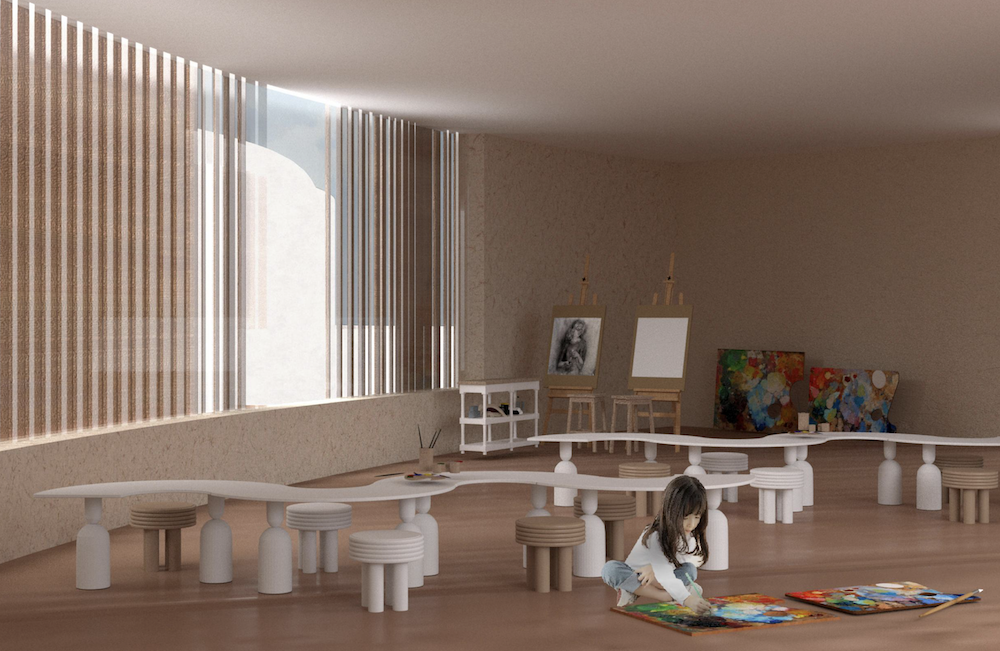
Molong Li's project
“In my past design projects, I usually approached problems only as an architect, but this time I feel an incredibly strong connection to the target group of this project. As a long-term patient who started treatment in adolescence, I have infused many of my own experiences into this design.
“I often wonder how things would have been different if I had a healing environment free from the stigma of illness during my youth. This project is about creating a healing space for teenagers, something I really needed but never had during my own growth. For me, the project is more like a reflection and healing of my past experiences,” Li says.
Another project from Yufei Chen, “A machine for healing: healthcare design for children”, explored the very sensitive subject of end of life care for children and their families during this traumatic event. The judges commended her very mature and sensitive handling of a difficult design challenge and her attention to the detail.
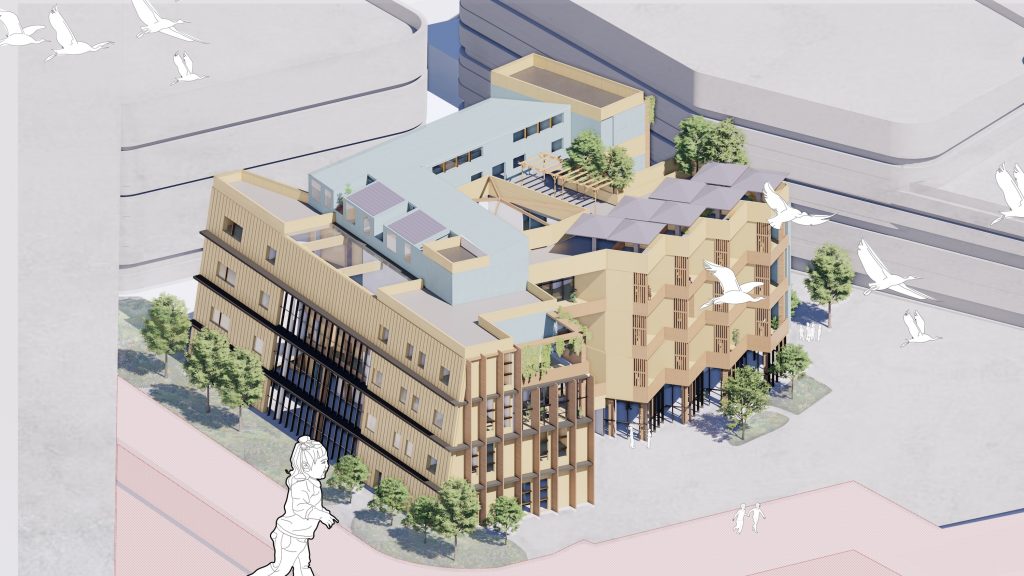
Yufei Chen's project
She explains: “For many people, children's palliative care is a heart-breaking topic that is difficult to discuss and often overlooked. Palliative care hospitals are typically located far from urban areas, reflecting the traditional avoidance and fear of death.
“During my preliminary research, I discovered that many terminally ill children die painfully and alone in the Pediatric Intensive Care Unit (PICU). Their parents often lack a place to rest and receive emotional support, leading to immense regret as they bid farewell to their children. Healthcare workers, working tirelessly, helplessly witness the passing of these poor little patients and frequently experience depression.

Yufei Chen's project
“Therefore, I want to create an empathetic children’s palliative care center using biophilic design, serving patients, parents, and healthcare workers at the same time. I hope to heal the souls and allow children and their parents to say goodbye on the last moment.”
Their design studio tutor and final year project supervisor, John Latto, commented that both students demonstrated a great deal of maturity and care to their research, analysis, and design development.
“Both Li and Chen develop a deep understanding of their projects, consequently resulting in a very responsive and human design. It was my first ever experience in 30 years that in their final review presentations, both students brought the reviewers to shed tears due to their obvious caring and how they responded so sensitively to the challenges presented by the brief.”
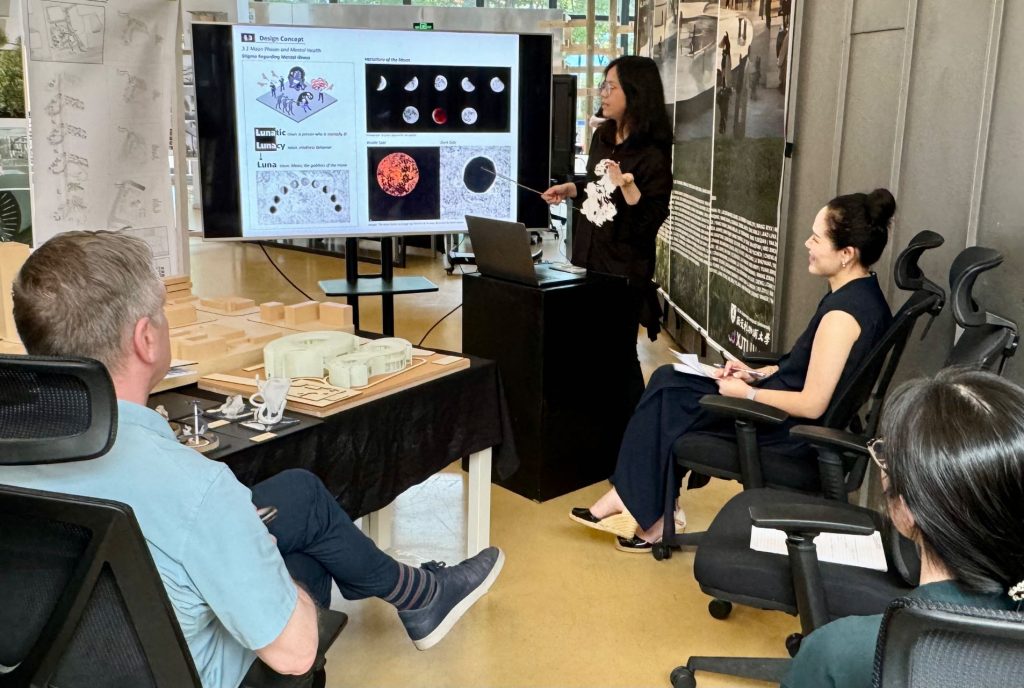
Molong Li in final review
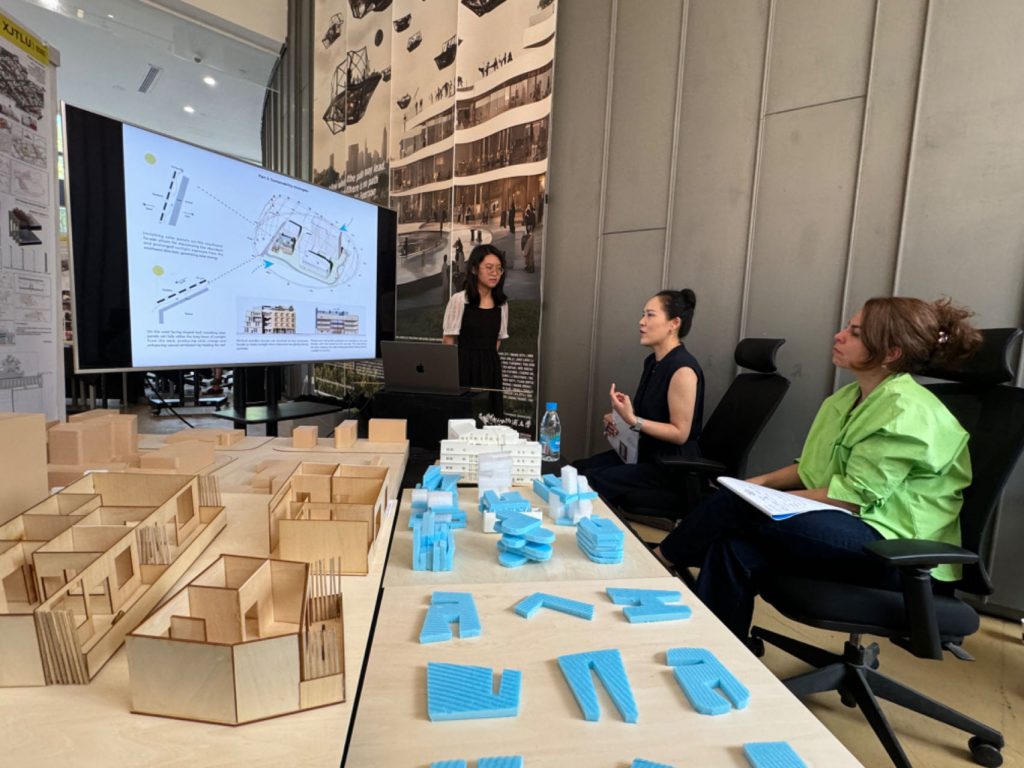
Yufei Chen in final review
It is also Li and Chen’s first time participating in an international architecture competition. Li says: “It provides significant help in developing my ability to clearly and accurately communicate complex design process and outcomes to reviewers, and the recognition of an award encourages me greatly to continue dedicating myself to studying and working in the field of design.”
Story and images provided by Department of Architecture
Edited by Yi Qian
06 Aug 2024








